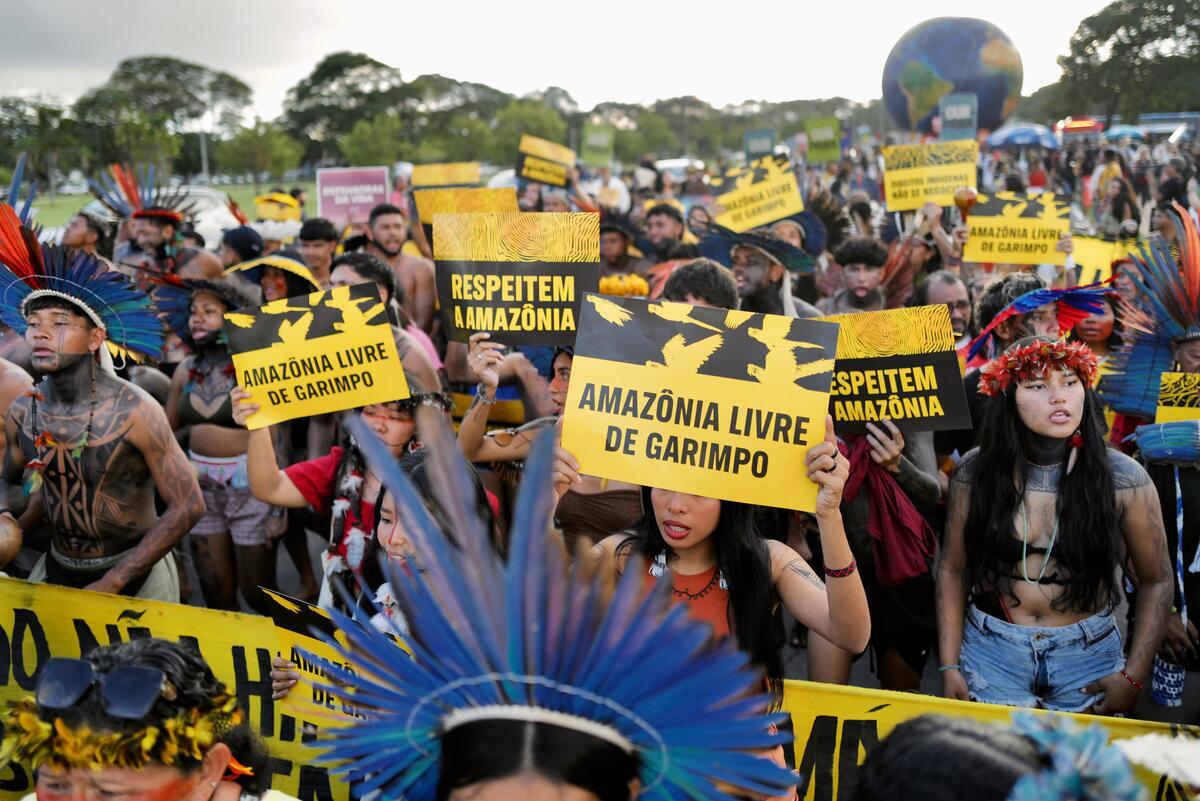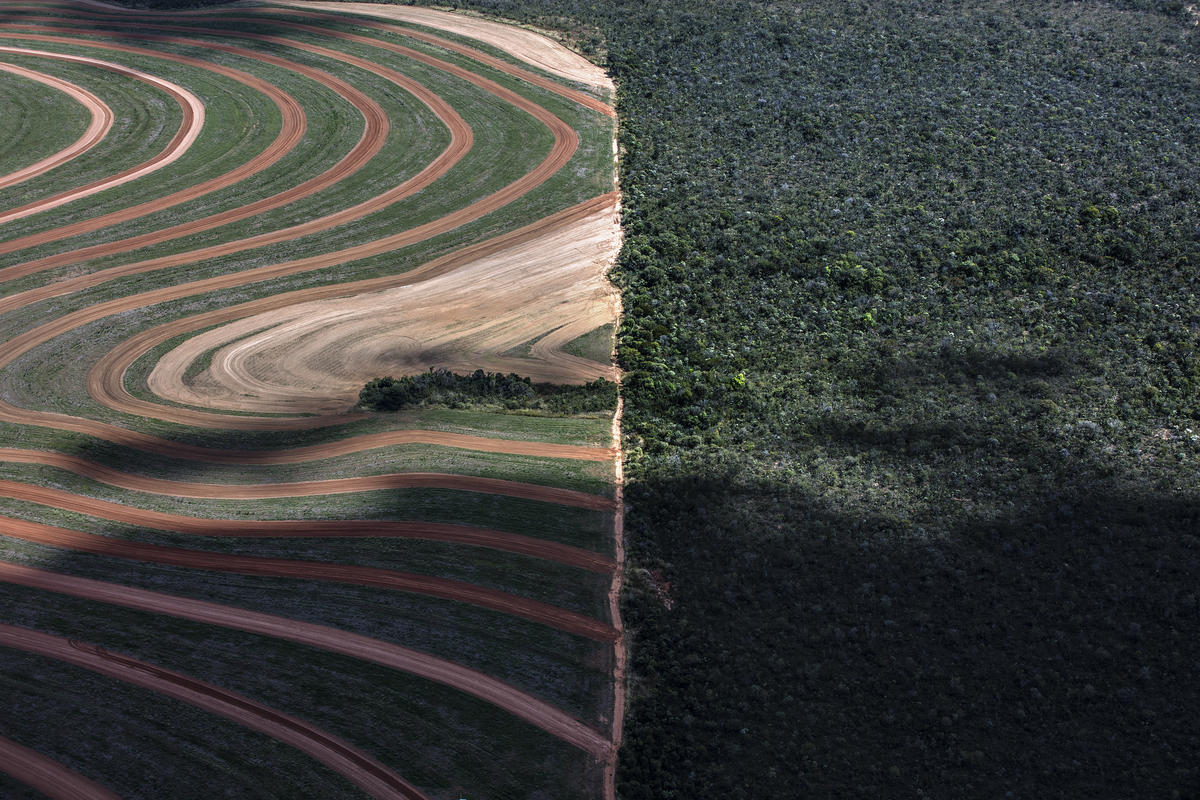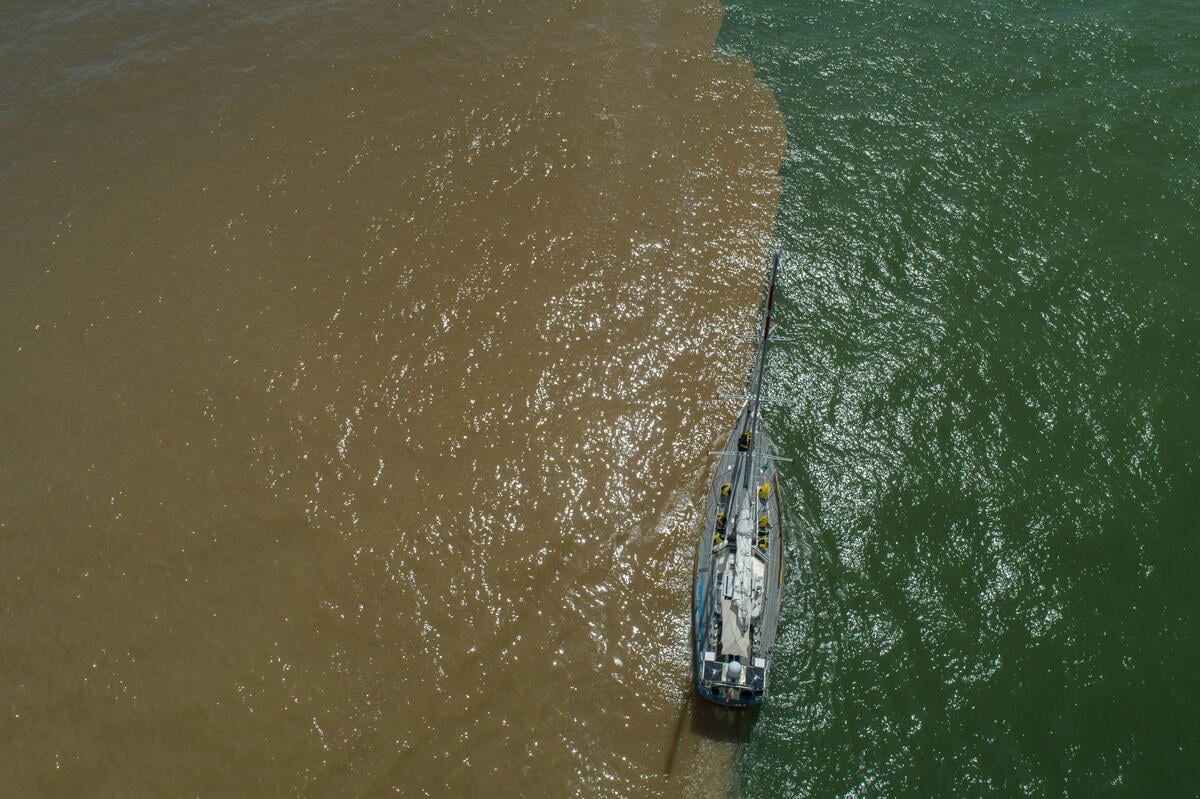Activities that destroy the Amazon rainforest are being financed by Brazilian national and international banks and, in some cases, even with Brazilians’ taxpayer money, according to a new report by Greenpeace Brazil (in Portuguese). The investigation analysed the granting of rural credits — a type of loan provided by public and private banks to finance agricultural production — to farmers in the Amazon and found several cases of properties that obtained loans despite problematic environmental track records.
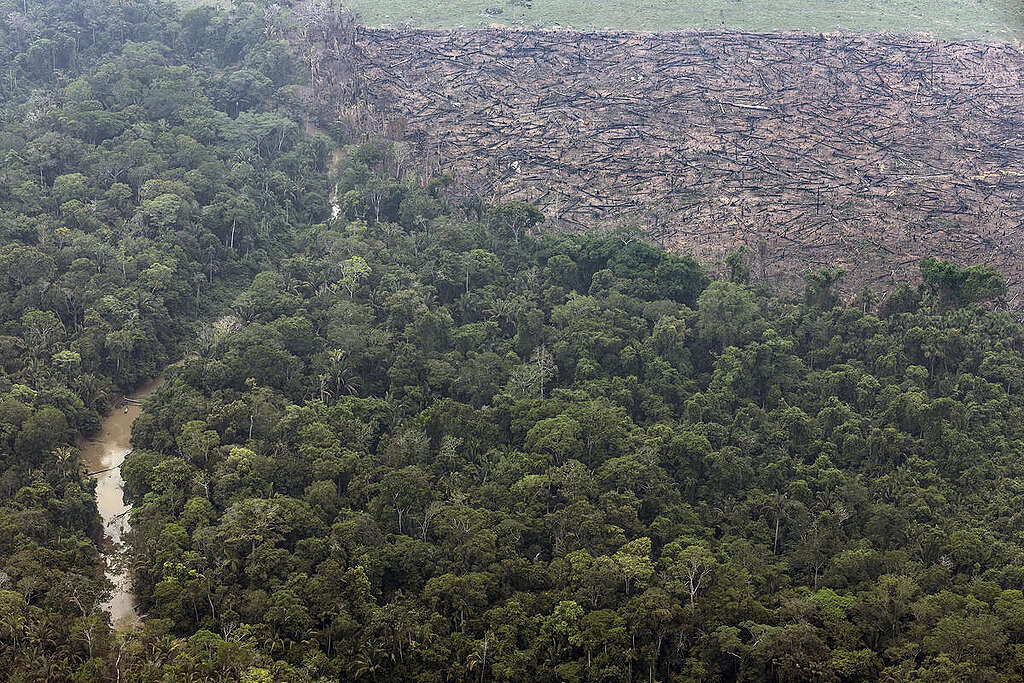
The report examines landowner properties listed in the Brazilian Central Bank’s database that received rural credit between 2018 and 2022 in the Amazon biome and found several breaches of the rules necessary for this type of financing. The investigation also exposes flaws in the banks’ control system and gaps in the rules in force, allowing millions of Brazilian Reais to be distributed to rural properties associated with socio-environmental damage. In the case studies presented in the report Bankrolling Extinction: Banks and investors as partners in deforestation, a total of over US$8.6 million was lent to rural properties marked by illegal deforestation, with signs of land grabbing, overlapping with protected areas or irregular cattle production.
According to the research, 10,074 properties were identified, partially or totally, inside of conservation areas protected by law. 41 of these are in fully protected areas, where there should be no economic activity. 24 properties partially or totally overlap with 7 Indigenous Lands, and 21,692 properties overlap with unprotected public forests.
In addition, the report shows that 798 properties that were embargoed by the Brazilian environmental agency Ibama also received financing, pointing towards non-compliance with the current rules and guidelines of the Brazilian Central Bank and the National Monetary Council. Recent deforestation (between 2018-2022) was identified in 29,502 large properties (over 1 hectare) that received rural credit in the same period.
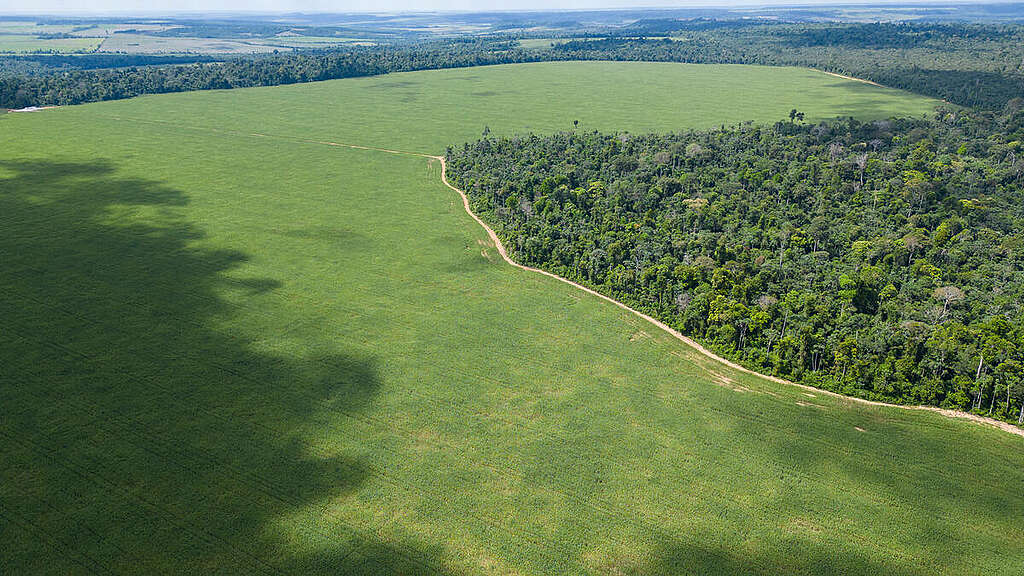
One of the investigations in the report exposes the Tayassu Farm, in the state of Pará. According to the report, from 2020 to 2021, a total of 250 hectares were deforested in the property. No deforestation licence was found by the research, which makes the practice illegal.
But none of this prevented the owner from getting loans in recent years with at least five banks to support the expansion of his business in Pará. One of the institutions is the Spanish Bank Santander. Greenpeace Brazil’s investigation identified three contracts signed with the farmer to lend him money to purchase machinery for his farm, due to be repaid in 2026 and 2027.
Another example showcases the Mata Verde Farm. According to data collected by the Brazilian National Research and Space Institution (INPE), there was illegal deforestation in the property between 2008 and 2021, reaching a total of 115 hectares. Between May and June 2022, another 54 hectares were deforested on the property, according to alerts from the RADD system and observed by Greenpeace Brazil’s Papa Alpha tool. According to Greenpeace Brazil’s investigation, Rabobank International Brasil provided financing to this property in September 2021, even though the bank claims it does not grant credit to companies or people involved in unauthorised deforestation since January 2005.
Greenpeace Brazil’s report found no deforestation authorization for these areas, indicating that the clearings are illegal.
We can’t keep financing our own extinction
Industrial agriculture (cattle farming and soya feed) is the main driver of deforestation in Brazil. According to MapBiomas, almost 96 percent of the deforested area in the country in 2022 was driven by agriculture. Deforestation causes habitat loss, which is the main driver of biodiversity loss. Moreover, deforestation is the main source of greenhouse gas (GHG) emissions in Brazil, with 48% of the country’s emissions in 2022, plus 27% coming from agricultural related activities, making the sector responsible for 75% of Brazil’s total emissions.
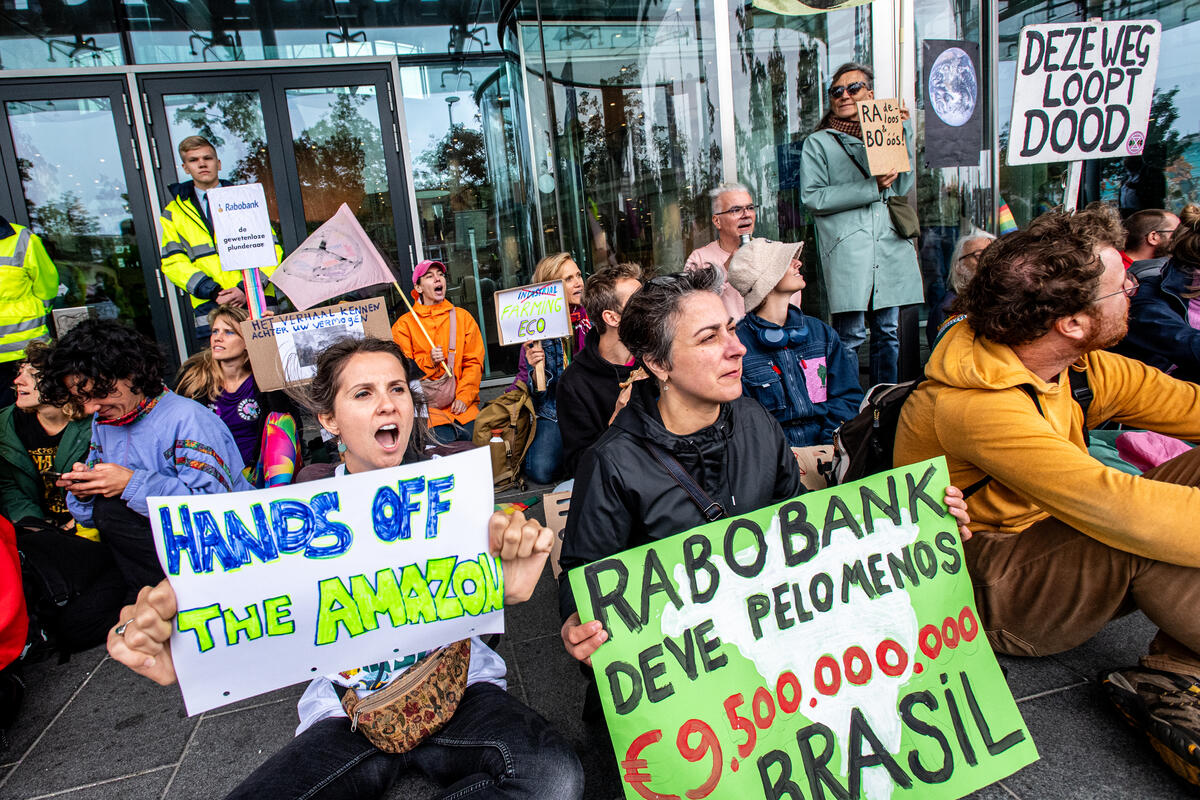
Continuing the financing of these activities without proper control of the destination of money flows poses a high risk for ecosystems in Brazil, but the issue is also a global one. Rabobank loans billions to industrial agriculture, putting forests and other ecosystems at risk. A study recently published by Greenpeace International, together with the organisations Milieudefensie (Friends of the Earth Netherlands) and Harvest, and supported by 17 NGOs, shows that some of the largest banks based in the European Union (EU) continue to loan and invest money into companies that put tropical forests, the Cerrado grasslands and other climate-critical natural ecosystems at risk.
In 2023, after consecutive years of increases, deforestation in the Amazon finally fell again, but it’s still far from zero. According to the Brazilian Space and Research Institute, 9,001 square kilometres were deforested in the Amazon last year, an area the size of 1.2 million soccer fields. In 2023, the Cerrado grasslands reached the highest rate of deforestation in the last seven years. Along with this environmental destruction often comes invasion of Indigenous Lands, violence and human rights violations.
Nations all over the world are facing the catastrophic effects of the climate emergency, and governments and economic sectors are not taking sufficient action to fulfil their commitments under the Paris Agreement. To keep global warming to 1.5°C, besides an energy transition we need zero deforestation and to shift money away from forest destruction and toward nature conservation and restoration.
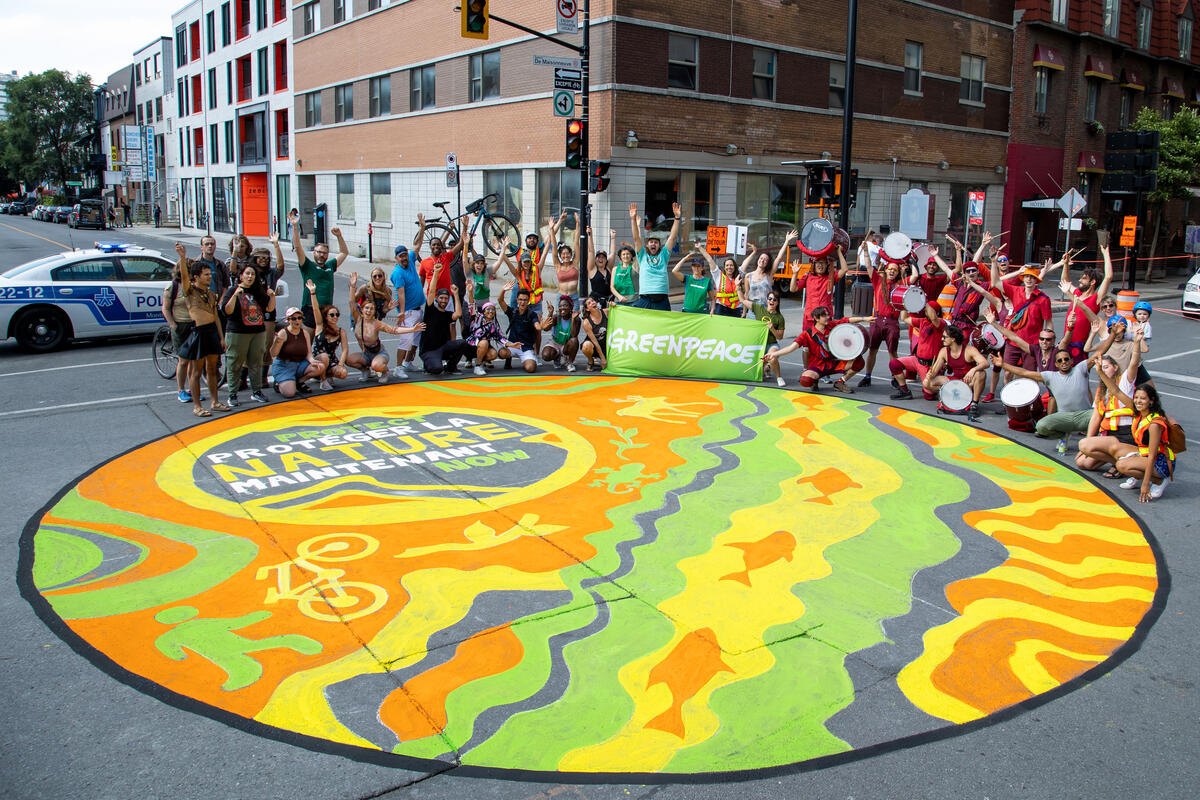
Besides that, the Kunming-Montreal Global Biodiversity Framework, which was agreed by 188 countries during the last United Nations Conference on Biodiversity (CBD/COP15) in 2022, requires all nations to propose concrete measures to bring financial flows (public and private) in line with the framework’s objectives and goals. This includes the elimination of public subsidies and other incentives that are harmful to biodiversity. Nations have made their promises but that is not enough.
The financial system needs to be drastically reformed to prevent it from continuing to bankroll the biodiversity crisis and climate emergency. Money continues to flow, without proper control and due diligence, towards expansion of economic activities that lead to nature destruction. Banks and regulators in Brazil need to do much more to not only ensure rural credits are not being used by properties riddled with irregularities, but also to issue new rules to strengthen socio-environmental requirements and close current loopholes. And ultimately, all over the world, governments must take real action to ensure financial institutions are not funding our own extinction.
Cristiane Mazzetti is a forest campaigner for Greenpeace Brazil.

